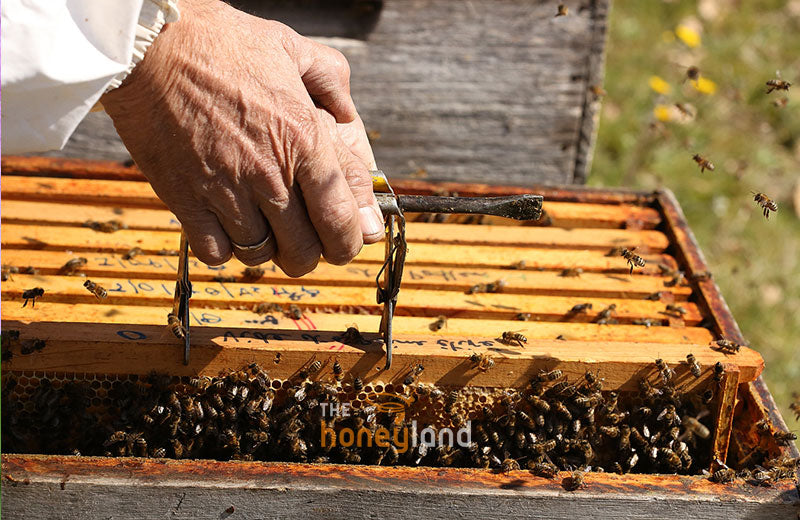Why ONLY certified organic beekeeping?
Despite media campaigns, modern beekeeping is not always synonymous with sustainability, indeed many of the practices used in conventional and intensive farming have negative effects on bees. It's not just about the place where the bees live, but also about the "method of running the hives" .
The Honeyland has selected certified organic beekeepers, professionals who actively contribute to the well-being of honey bees, in contrast to the predominant conventional method. Not just beautiful words, but many actions documented by certifying bodies .
Many of them have over 40 years of experience and are pioneers of organic beekeeping in Italy and France : Massimo Carpinteri, Luca Bonizzoni, Luigi Manias, Renato Panciera and Jerome Sarre.
Only natural treatments: without toxic pesticides
As in all forms of animal husbandry, numerous heavy drugs such as antibiotics , insecticides , fungicides and synthetic acaricides are also used in conventional beekeeping. These can be found in honey, propolis, pollen and beeswax.
Our beekeepers use natural practices and only minimally invasive remedies for bees. Compared to conventional ones, they are certainly more expensive and require much more commitment, professional ability and experience.
Bee grazing & environmental quality
It is now known that bees are our environmental sentinels, therefore various contaminations deriving from industrial and urban activities can also be found in the products of the hive - from pesticides , to heavy metals and other dangerous environmental toxins (such as PAHs). For this reason there are significant differences even between organic products.
We have selected beekeepers who face great difficulties in bringing their bees to Natural Parks and mountain areas, truly uncontaminated places . And it is only thanks to our very short supply chain that it is possible to know exactly the origin of each raw material - something impossible in large industrial productions.
Hive materials
Unlike conventional beekeeping, our beekeepers' hives are always built in wood and never in polystyrene , a material preferred by most beekeepers because it is very economical. Furthermore, they are always painted only with natural materials to eliminate contamination from toxic paints.
Bee nutrition
To obtain honey and other bee products at low prices , the practice of artificially feeding bees all year round is increasingly widespread in Italy too. In addition to the low quality of the honey obtained in this way, this weakens the immune system of the bees which then require many treatments based on drugs...
Our beekeepers only supply the bees with their honey and pollen . Only in case of major climate emergency (especially in bad years) and for a limited period, certified organic sugar syrup. This means smaller production and partly explains why some of our artisanal organic products have higher prices than those commonly sold in the supermarket or in markets.
Beeswax from the hives
In general, numerous toxic molecules can be found in beeswax from honeycombs (up to 270 different types and some carcinogenic!), both due to the treatments carried out by beekeepers and due to the environment in which the bees live.
Instead, the wax from our beekeepers is absolutely clean, without chemical residues as demonstrated by many control analyses . Even in the new honeycombs they only use their own wax or organic wax certified by safe supply chains.
This is why our creams with Italian organic beeswax are also of exceptional quality.

